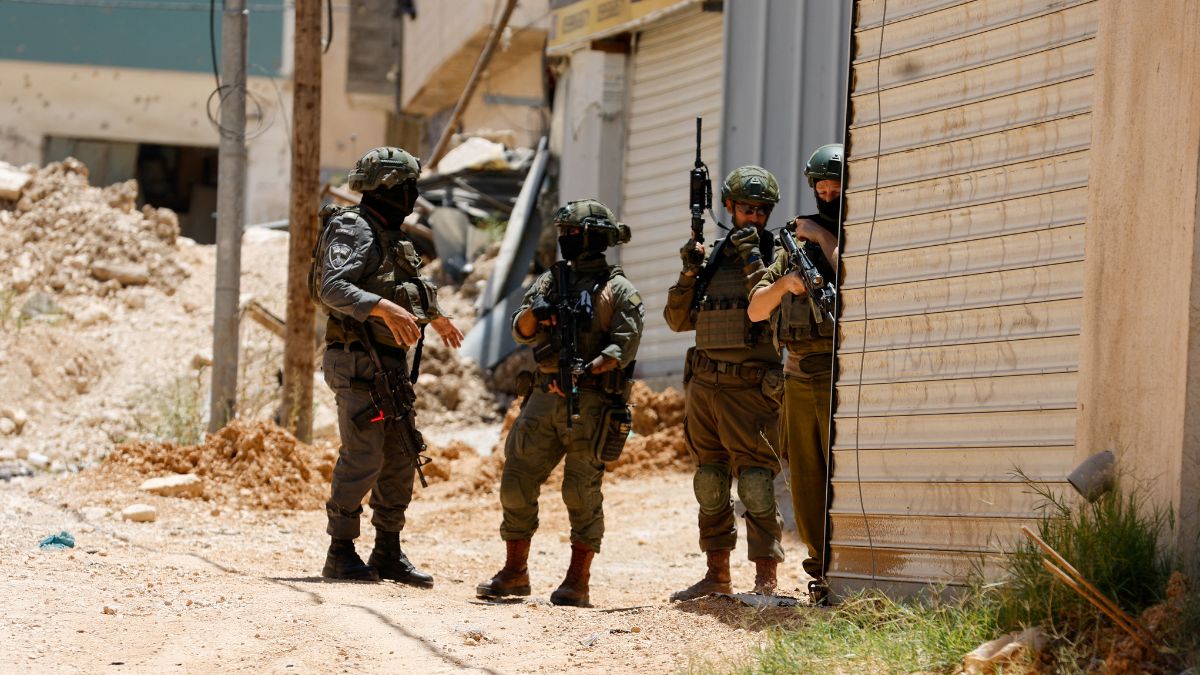The Israeli Defence Forces (IDF) has made it compulsory for every soldier and officer in the intelligence unit to be trained in Arabic and Islamic Studies.
By the end of next year, all members of AMAN, which is the Hebrew short form for Israel’s Military Intelligence Directorate, will be trained in Islamic Studies. Half of them will also receive training in Arabic.
ALSO READ | ‘1 in 5 children in Gaza City is malnourished’: Where’s the food aid?
This decision has been issued by AMAN head Major General Shlomi Binder.
But why has the order been issued?
Let’s find out:
Why Israel made Arabic, Islam studies mandatory for military
The IDF’s Intelligence Directorate is making major changes to its Arabic and Islamic Studies training, The Jerusalem Post reported. The move comes after major intelligence setbacks linked to the events of October 7, 2023.
The aim is to make future commanders fluent in Arabic and knowledgeable about Islamic culture, helping them analyse situations more effectively.
Speaking to the newspaper, Doron Kadosh, the military correspondent for Israel’s Army Radio, said a new department will be set up to focus on Arabic and Islam teaching.
The training will also cover the Houthi and Iraqi dialects.
As part of the changes, the army also plans to restart the Telem. Notably, this programme previously supported Arabic and Middle Eastern education in Israeli middle and high schools but was closed six years ago due to funding issues.
Its closure caused a sharp fall in Arabic learning.
Telem had offered pre-military seminars and cultural workshops to help students better understand the Arab world.
Now, this training will become a central part of Aman’s instruction system. It will start from pre-service stages and continue through advanced officer courses.
Impact Shorts
More ShortsBy next year, all intelligence soldiers, including cyber experts from Unit 8200, will be trained in Islamic studies, and 50 per cent of them will be trained in Arabic, the report said.
ALSO READ | Why France has decided to recognise Palestine statehood now
The challenges
One of the key challenges facing Israeli intelligence in recent years has been the difficulty in interpreting Houthi communications.
The issue, the report says, is partly caused by the Houthis’ regular use of qat, a mild narcotic plant chewed socially in Yemen and some other Arab regions. It affects clarity of speech, making it harder for intelligence personnel to understand their messages.
In June, an Israeli attempt to assassinate the Houthi military commander reportedly failed because he was at a gathering that focused on qat-chewing, according to the Army Radio.
To help with these problems, Aman is starting new courses on Houthi and Iraqi Arabic dialects.
The aim is to help language analysts better understand local variations and cultural subtleties.
Teachers from those communities have been brought in to provide authentic instruction.
A senior Aman official told Army Radio, “Until now, we haven’t been good enough in the areas of culture, language, and Islam. We need to improve in these areas.
We won’t turn our intelligence officers and soldiers into Arab kids who grew up in a village, but through language and cultural studies, we can instil in them doubt and deep observation.”
Israel-Hamas conflict rages on
This move comes at a time when Israeli Prime Minister Benjamin Netanyahu has said his government is considering “alternative options” to ceasefire negotiations with Hamas.
Both Israel and the United States have pulled back their negotiating teams, creating more uncertainty around future talks.
Efforts by the Trump administration to broker a ceasefire between Israel and Hamas have so far failed.
Experts are warning that Gaza is now on the brink of famine due to Israel blocking food entirely or allowing in only small quantities for months.
ALSO READ | Gaza in ruins: How the territory has been reduced to rubble
Recently, the number of deaths due to lack of food has increased.
Over two dozen countries Western-aligned nations and more than 100 aid and human rights groups have demanded an end to the war. Many have condemned Israel’s blockade and criticised a new aid delivery method introduced by Israel.
Some of the aid groups said even their own staff are unable to get enough food.
At the Patient’s Friends Hospital, the main centre treating malnourished children in northern Gaza, more children than ever before are arriving in critical condition.
Gaza’s Health Ministry said around 80 people have been killed since Thursday night, mostly in airstrikes. Nine of those died while trying to receive aid.
With inputs from agencies


)

)
)
)
)
)
)
)
)



